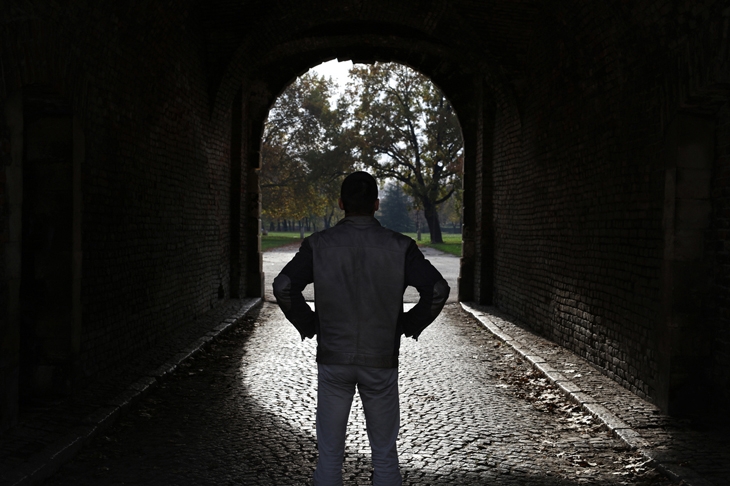The death of Denis Johnson last May marked the loss of a great original who catalogued the lives of junkies, social misfits and minor criminals from an insider’s perspective — which is not surprising, considering his own history of drug and alcohol abuse. Certainly his most celebrated work, the hilarious yet profoundly moving story collection, Jesus’ Son, reinforced that image, offering us characters like the narrator of ‘Steady Hands at Seattle General’, who can, in all seriousness, ask a man with a recent gunshot wound: ‘When you were shot right through your face like that, did the bullet go on to do anything interesting?’ (The other replies, ‘How would I know? I didn’t take notes.’)
Elsewhere — in the National Book Award-winning novel Tree of Smoke, for instance — Johnson can describe a character thus: ‘She had nothing in this world but her two hands and her crazy love for Jesus, who seemed, for his part, never to have heard of her.’ This extraordinary gift for mixing pain and comedy, alongside a spare, lyrical style, seemed to categorisehis writing.
Yet, while the new story collection The Largesse of the Sea Maiden continues in similar vein, it reveals other gifts that even Johnson’s fans overlooked during his lifetime. In fact, the weakest story here is the rehab-epistolary piece, ‘The Starlight on Idaho’, which is overlong and repetitive — both rarities in Johnson’s oeuvre. The two strongest revolve around men who, whatever the past may contain, are now living more or less ordinary lives. The first, an advertising ‘creative’ past his prime, is a connoisseur of silences and such random moments as transform a routine museum visit into an existential challenge:
And outside… the grounds were being dug up and reconstructed — a dragline shovel nosing the rubble monstrously and a woman and child watching motionless, the little boy standing on a bench with his smile and sideways eyes and his mother beside him, holding his hand, both so still, like a photograph of American ruin.
It is as if the Robert Lowell of ‘For the Union Dead’ had conspired with the cruelly matter-of-fact William Eggleston to create the most searing, yet oddly banal, image of contemporary desolation they could dream up.
But such stark moments are rare. More usual is a dizzying mix of humour and near tragedy that leaves us unsure whether to laugh or weep, as Johnson leads us off on one of his side trips to the hospital or funeral parlour. In the ironically titled ‘Triumph over the Grave’, which opens with a poignant anecdote about death and coincidence, Johnson moves on to a meditation about the writer’s life: it’s easy work, apparently, as ‘the equipment isn’t expensive, and you can pursue this occupation anywhere’. Then he allows himself to deliver one of the saddest flash fictions I have ever read. A man is overheard on the phone saying, ‘Your dog. Your dog. Your dog. You were a fool to leave your dog with me.’ Only after this does Johnson launch into the main story, which is — well, something else.
For too long, Denis Johnson was not sufficiently appreciated. A fine novelist and poet as well as one of the best short story writers of his generation, he understood, and tried to set down in words, what he called in one poem
the prayer that everything
is praying: the summer evening a held bubble,
every gesture riveting the love,
the swaying of waitresses, the eleven television
sets in a storefront broadcasting a murderer’s face —
these things speak the clear promise of Heaven.
How could we not miss him?






Comments